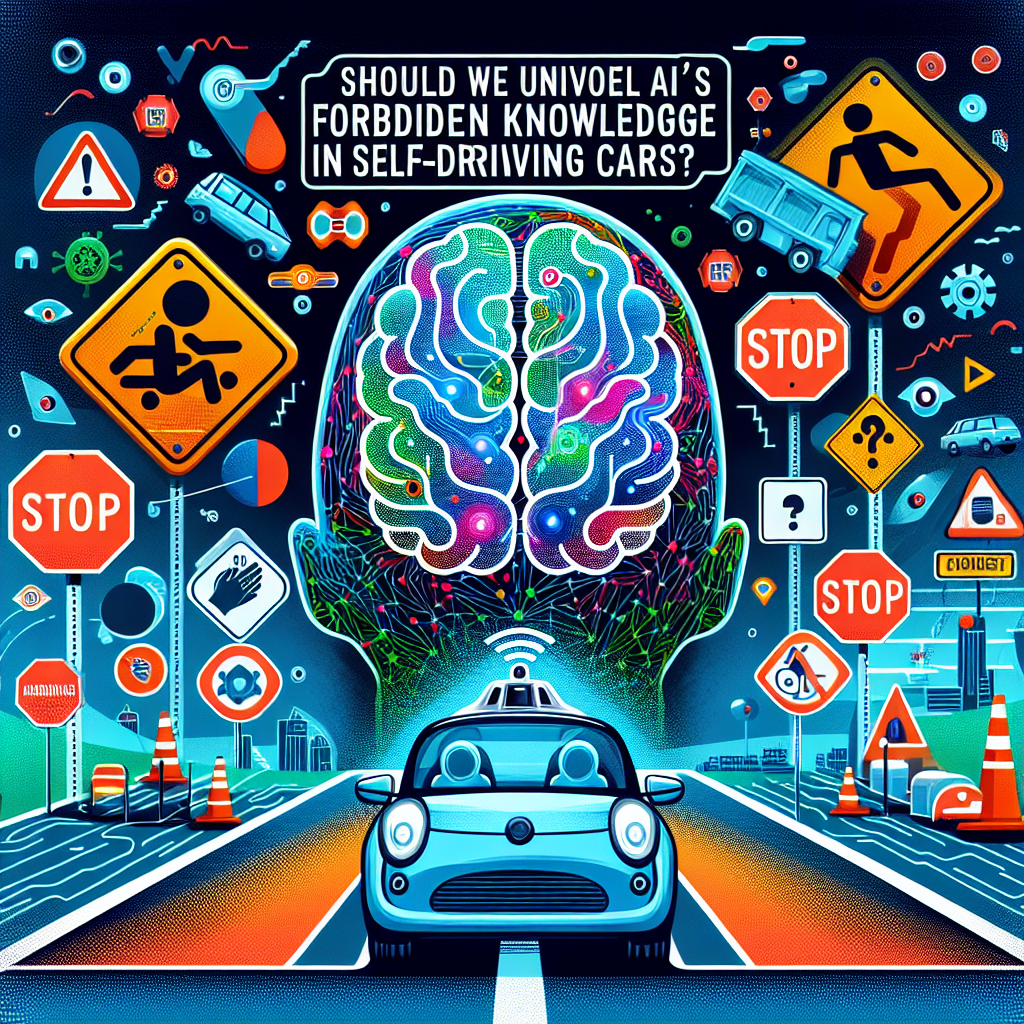Hey there! Today, we’re diving into an intriguing and somewhat philosophical topic: Is there such a thing as forbidden knowledge in AI, particularly concerning self-driving cars? Grab your favorite beverage, and let’s go on this rollercoaster ride together!
Forbidden Knowledge: Should We Fear What We Might Discover?
The term “forbidden knowledge” might evoke images of ancient scrolls locked away in secret vaults or the harrowing tales of the Garden of Eden. But in our high-tech age, we’re talking about something even more fascinating—and perhaps a bit alarming. Could certain advances in AI, if discovered, bring about more harm than good? Let’s unpack this.
The Atomic Bomb and AI: A Tale of Two Technologies
Think back to the creation of the atomic bomb. This innovation, though scientifically groundbreaking, opened Pandora’s box. It presented the world with the dual-edged sword of nuclear energy—potentially as much a doomsday device as it is a source of power. Some argue that creating AI, especially something as transformative as self-driving cars, might be another such Pandora’s box.
Imagine for a moment if we could develop AI systems that perfectly emulate human thought processes. On one hand, we’d achieve marvels like Level 5 autonomous vehicles—cars that can drive themselves in any situation, no human needed. On the other hand, what if that same understanding of the human mind leads to outcomes we can’t yet foresee? Could it be our downfall?
Common-Sense Reasoning: The Holy Grail or a Red Herring?
One of the biggest challenges in AI today is replicating human common-sense reasoning. Humans, after all, use common sense to navigate the world effortlessly. For example, if you see a child chasing a ball into the street, you instinctively stop your car. Getting an AI to understand and react similarly is the stuff of sci-fi dreams—and potentially forbidden knowledge.
So, this raises an eyebrow-raising question: Is there something inherently dangerous in unlocking the secrets of human cognition to build such advanced AI? What if the very act of understanding and codifying common-sense reasoning in machines exposes a peril we can’t fathom yet?
The Pragmatic Side of Things
But let’s not jump to conclusions too hastily. Many leading experts in AI argue that the technology behind autonomous vehicles is more mundane than mysterious. Yes, building a self-driving car is complex, but it’s no arcane magic—it’s a lot of hard engineering work, data crunching, and relentless testing.
Despite this, there’s a contingent that worries we might stumble upon something catastrophic just by pushing the envelope further. It’s like attempting a complex magic trick; sometimes, you don’t know what unexpected outcomes might occur until you do it.
Where Are We Heading with Self-Driving Cars?
Today, we’re inching closer to Level 4 autonomous vehicles. These are cars that can handle most driving situations independently but might still need human intervention under tricky circumstances. Level 5, the Holy Grail, is still out of our reach. It’s the dream of cars being entirely self-sufficient, no human needed ever.
Some say that to achieve Level 5, we need a paradigm shift in AI, a breakthrough that might lie in forbidden knowledge. Others believe we’re simply engineering our way there, one algorithm at a time.
Take a Bite or Not: The Apple Dilemma
As we move towards these advances, we need to ask ourselves: Are we ready for the potential consequences, good or bad? Should we take a bite out of this new technological apple, not knowing if it’s a gift or a curse?
Leave your thoughts in the comments! Do you think some AI knowledge should remain unexplored—or do we have a responsibility to venture into the unknown?
Stay curious, stay cautious, and let’s keep this conversation going! 🚗💬
